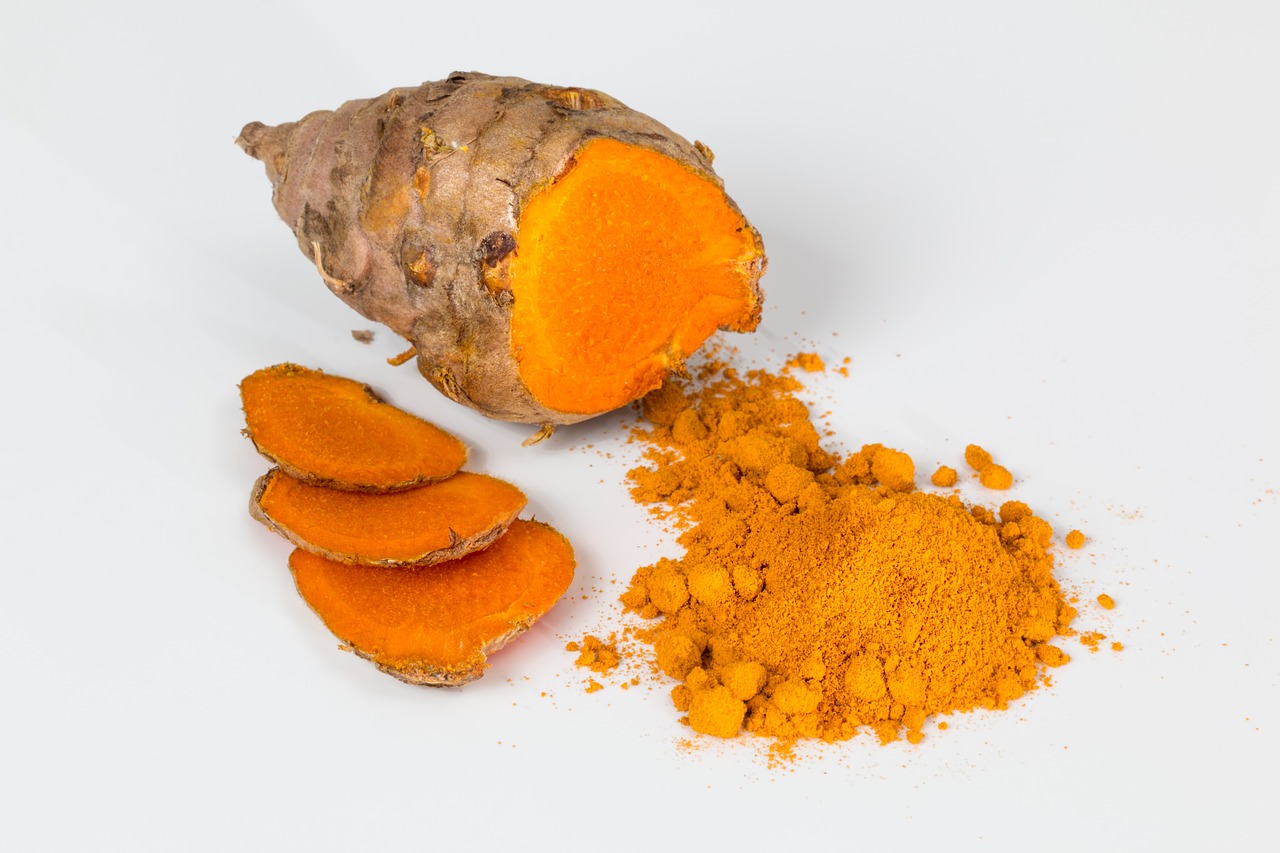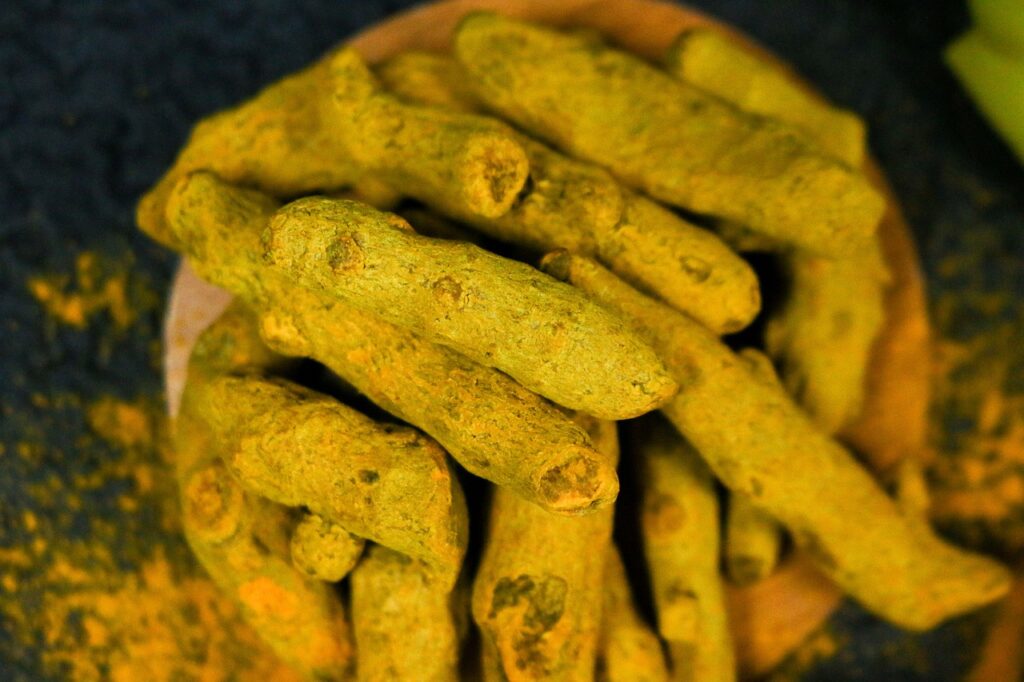10 Turmeric Home Remedies for a Glowing Face: Unveiling the Golden Secret to Radiant Skin, and side effect
Turmeric is renowned for its skin-enhancing properties, and here are ten effective home remedies for achieving a glowing face using turmeric:
1. Turmeric and Yogurt Face Mask:
- Mix 1 teaspoon of turmeric powder with 2 teaspoons of plain yogurt.
- Apply the mixture evenly to your face.
- Leave it on for 15-20 minutes.
- Rinse off with warm water, pat your face dry, and moisturize.
2. Turmeric and Honey Face Mask:
- Combine 1 tablespoon of turmeric powder with 1 tablespoon of raw honey.
- Apply the mixture to your face and neck.
- Let it sit for 20-30 minutes.
- Rinse off gently with warm water and pat your face dry.
3. Turmeric and Milk Face Pack:
- Mix 1 teaspoon of turmeric powder with 2 teaspoons of milk to form a paste.
- Apply it evenly on your face.
- Allow it to dry for 15-20 minutes.
- Rinse off with lukewarm water and pat dry.
4. Turmeric and Gram Flour (Besan) Face Pack:
- Mix 1 tablespoon of gram flour with ½ teaspoon of turmeric powder and a little water to create a paste.
- Apply the paste to your face and neck.
- Let it dry for 15-20 minutes.
- Gently scrub it off while rinsing with water.
5. Turmeric and Aloe Vera Gel Face Mask:
- Mix 1 teaspoon of turmeric powder with 2 teaspoons of fresh aloe vera gel.
- Apply the mixture to your face.
- Leave it on for 20-30 minutes.
- Rinse off with lukewarm water and pat dry.
6. Turmeric and Cucumber Juice Face Pack:
- Blend a few slices of cucumber and strain the juice.
- Mix the cucumber juice with ½ teaspoon of turmeric powder.
- Apply the mixture to your face and leave it on for 15-20 minutes.
- Rinse off with cool water and pat your face dry.
7. Turmeric and Rose Water Face Mask:
- Mix 1 teaspoon of turmeric powder with enough rose water to form a paste.
- Apply the paste to your face and neck.
- Allow it to dry for 15-20 minutes.
- Rinse off gently with water and pat dry.
8. Turmeric and Lemon Juice Face Pack:
- Mix 1 teaspoon of turmeric powder with 1 tablespoon of fresh lemon juice.
- Apply the mixture to your face.
- Leave it on for 10-15 minutes.
- Rinse off with cool water and pat your face dry.
9. Turmeric and Papaya Face Mask:
- Mash a few pieces of ripe papaya and mix in ½ teaspoon of turmeric powder.
- Apply the mixture to your face and leave it on for 15-20 minutes.
- Rinse off with water and pat dry.
10. Turmeric and Coconut Oil Face Pack:
- Mix 1 teaspoon of turmeric powder with 1 tablespoon of coconut oil.
- Apply the mixture to your face and neck.
- Allow it to sit for 20-30 minutes.
- Rinse off gently with warm water and pat your face dry.
For any of these remedies, ensure your face is clean before application. Avoid contact with the eyes, and if you experience any irritation, discontinue use. It’s always a good idea to do a patch test before applying any new product to your face, especially if you have sensitive skin. Incorporate these turmeric remedies into your skincare routine regularly to achieve a radiant and glowing complexion.
Turmeric, also known as Curcuma longa, is a popular spice widely used in culinary and traditional medicine. The primary active component in turmeric is a polyphenol called curcumin, which is responsible for most of its health benefits. Curcumin gives turmeric its characteristic bright yellow color and has potent antioxidant and anti-inflammatory properties.
In addition to curcumin, turmeric also contains other bioactive compounds, including:
Curcuminoids: Besides curcumin, turmeric contains other curcuminoids like demethoxycurcumin and bisdemethoxycurcumin, which contribute to its health effects.
Turmerones: These are essential oils found in turmeric, which also possess health-promoting properties.
Polysaccharides: Turmeric contains natural sugars known as polysaccharides that may have beneficial effects on the immune system.
Proteins: Turmeric also contains various proteins, though they are present in smaller amounts compared to other components.
Dietary Fiber: Turmeric is a source of dietary fiber, which can have positive effects on digestive health.
Minerals: Turmeric contains essential minerals like calcium, iron, potassium, manganese, zinc, and magnesium, which play crucial roles in various bodily functions.
It’s important to note that the amount of curcumin in turmeric is relatively low, usually around 3% by weight. This means that consuming turmeric alone might not provide enough curcumin to experience its full health benefits. To enhance curcumin’s absorption, it’s often recommended to consume turmeric with black pepper, which contains a compound called piperine that can increase curcumin’s bioavailability.
Additionally, curcumin is fat-soluble, so consuming turmeric with a source of healthy fat (e.g., coconut oil, olive oil) may also improve its absorption.
Turmeric is generally considered safe for most people when used in moderate amounts as a spice in food or as a supplement. However, like any natural remedy or supplement, turmeric may have some side effects and interactions to be aware of. Here are some potential side effects of turmeric:
Stomach Upset: Some individuals may experience mild gastrointestinal discomfort, such as bloating, gas, or diarrhea, when consuming large amounts of turmeric.
Allergic Reactions: Allergic reactions to turmeric are rare but possible. If you experience itching, rash, or swelling after consuming or applying turmeric, discontinue use and seek medical attention.
Gallbladder Issues: Turmeric may worsen gallbladder problems or cause gallstones in some individuals. Those with gallbladder issues should exercise caution when using turmeric.
Blood Thinning: Turmeric has natural antiplatelet properties, which means it may reduce blood clotting. If you are taking blood-thinning medications like warfarin, consult your doctor before using turmeric supplements.
Interaction with Medications: Turmeric may interact with certain medications, including blood thinners, antacids, diabetes drugs, and drugs that affect the liver. Always check with your healthcare provider before taking turmeric supplements if you are on any medications.
Staining: When applied topically, turmeric can temporarily stain the skin, especially in high concentrations. This staining is harmless and fades over time.
Pregnancy and Breastfeeding: While using turmeric in moderate amounts as a spice is likely safe during pregnancy and breastfeeding, taking high doses of turmeric supplements is not recommended. Always consult your doctor before using turmeric during pregnancy or breastfeeding.
Iron Absorption: Turmeric may hinder the absorption of dietary iron in some individuals, which could be a concern for those with iron deficiency.
It’s important to remember that individual responses to turmeric may vary, and some people may be more sensitive to its effects than others. If you experience any adverse reactions or side effects while using turmeric, discontinue use and consult a healthcare professional.
FAQs.
1 What are the health benefits of turmeric?
Turmeric offers numerous health benefits primarily due to its active compound, curcumin. Curcumin is a potent antioxidant and has anti-inflammatory properties, which can help reduce oxidative stress and inflammation in the body. Research suggests that turmeric may aid in managing conditions like arthritis, heart disease, and certain types of cancer. It may also support brain health, improve digestive function, and enhance the immune system.
2 How can turmeric be used to enhance skincare?
Turmeric is renowned for its skin-enhancing properties. It can be used in various home remedies to achieve a glowing face. Turmeric face masks and packs can help reduce acne, soothe irritated skin, improve complexion, and provide a healthy radiance. Additionally, turmeric’s antimicrobial properties may assist in managing skin conditions like eczema and psoriasis.
3 Are there any precautions to consider when using turmeric for skincare?
While turmeric is generally safe for most people, some individuals might be sensitive to it. Always perform a patch test before applying any turmeric-based product to your face, especially if you have sensitive skin. Avoid contact with the eyes, as turmeric can cause temporary staining. If you experience any adverse reactions or irritation, discontinue use and consult a dermatologist.
4 How can I increase the absorption of curcumin from turmeric?
To enhance the absorption of curcumin, consume turmeric with black pepper. Piperine, a compound found in black pepper, can significantly improve curcumin’s bioavailability. Additionally, turmeric is fat-soluble, so combining it with a source of healthy fat, such as coconut oil or olive oil, can also enhance its absorption.
5 Can I use turmeric as a substitute for medications?
Turmeric should not be used as a substitute for prescribed medications without consulting a healthcare professional. While it offers several health benefits, it cannot replace medications for specific medical conditions. If you have any health concerns or are on medication, consult your doctor before using turmeric supplements or applying turmeric-based remedies for medicinal purposes.
In conclusion, turmeric’s curcumin compound provides various health benefits, including antioxidant and anti-inflammatory effects. When used in skincare, it can enhance the complexion and provide a radiant glow. However, individual responses to turmeric may vary, and precautions should be taken, especially if you have sensitive skin or are on medications. For optimal absorption, consume turmeric with black pepper and a source of healthy fat. Always consult a healthcare professional before making significant changes to your diet or using turmeric for medicinal purposes.

